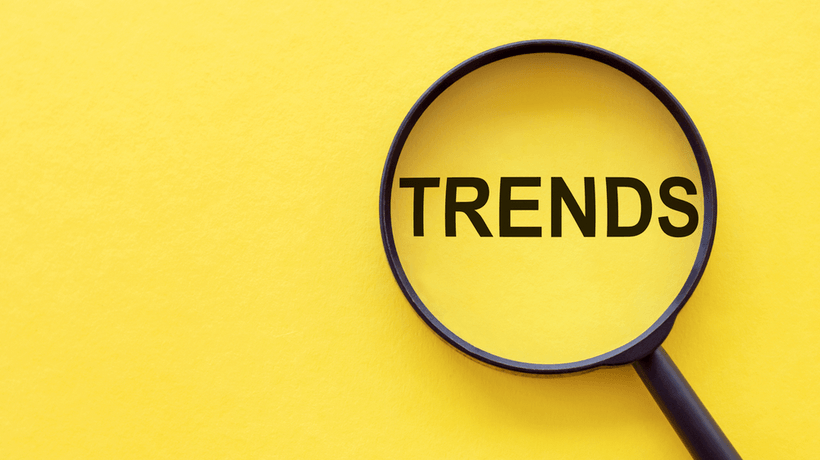Webinar (Wednesday, February 4): How to Automate and Modernize Your 2026 Commissions
RegisterInside the sales team, some reps are better than others.
They can be disobedient, behave like lone wolves, have an air of superiority that makes you want to put them back in their place... In spite of this, it is always a pleasure to have them in your team because they are capable of achieving the group's performance alone.
And to keep them in ranks, there aren't 1000 solutions, you’ll need to put your hand in the wallet.
"The first motivation lever of the Salesman comes from the bonus. They are sportsmen at heart and this notion of reward versus effort versus merit is absolutely key."
Vladimir Ionesco, Director of Global Sales Performance at Doctolib
According to a Primeum, comment-remunerer.com and MeteoJob survey, 46% of respondents believe that their compensation package is not likely to retain the best talent.
However, paying more often leads to the following fear: they will cost the company more than what they bring in... And yet, this fear isn’t proved, on the contrary, and this is what we are going to prove to you!
1. Setting the scene
What better way to test the theory than in a real-life situation?
Let's take the following example: a company that sells B2B SaaS software.
Commercial and financial data
- Annual Recurring Revenue (ARR): €10 million
- Annual Contract Value (ACV): €20,000
- Customer Cost Acquisition (CCA) target: €15,000 maximum
- Marketing & Sales Tools budget: €2 million
- 20 Sales Account Executives :
- Fixed salary (€42,000)
- Variable remuneration (€28,000)
- Annual quota: €360,000, i.e. a target of 18 customers to be signed each year (€20,000 x 18 = €360,000).
Fixed costs
The fixed costs are as follows:
Marketing Budget & Internal Sales Tools + Fixed Salaries x Expenses = Fixed Costs
In this example:
2 Million € + (20 x €42,000) x 1.45 = €3,218,000
In order to visualize the financial and commercial impact of paying top performing reps exceptionally well, we will present two scenarios.
Variable costs (Scenario 1)
The first scenario corresponds to a classic scenario: all the sales staff achieve 100% of their objectives, i.e. 18 clients closed, and thus receive their full variable, i.e. €28,000.
The variable costs are as follows:
Number of sales staff x Variable pay x Expenses = Variable costs
That is, in scenario 1:
20 x €28,000 x 1.45 = €800,000
Customer acquisition cost (Scenario 1)
The Customer Acquisition Cost (CAC) is defined as follows:
(Fixed costs + variable costs) / Number of customers = CAC
That is, in scenario 1:
(€3,218,000 + €800,000) / 360 = €11,161
In the situation where sales people reach 100% of their target, acquiring a new customer therefore costs the company €11,161.
Variable costs (Scenario 2)
In the second scenario, let’s imagine that 16 sales reps reach 100% of their targets, and that 4 of them reach 200% of their targets. To reward these 4 salespeople for their performance, the company will triple their variable pay (even though they have only doubled their targets).
In this example, 16 salespeople signed 18 new customers, and 4 salespeople signed 36 customers, for a total of 432 customers.
The fixed costs obviously remain the same, i.e. €3,218,000. However, the variable costs are changing, as the variable of 4 sales representatives has increased from €28,000 to €84,000.
Or in scenario 2:
(16 x €28,000 + 4 x €84,000) x 1.45 = €1,136,800
Customer acquisition cost (Scenario 2)
This gives us the following CAC:
(€3,218,000 + €1,136,800) / 432 = €10,080
As can be seen, the cost of customer acquisition is lower in the second scenario (€10,080 vs. €11,161), while the company tripled the variable compensation of the salespeople who had reached 200% of their objectives.

2. Conclusion
As we have just seen in the previous scenario, setting up a commission accelerator is the most cost-effective way to boost your sales performance!
As proof, 42.4% of employees with commission accelerators exceeded their targets in 2022, compared with only 25.9% of those without (Qobra & Modjo study on commissions in France).
A commission accelerator is not only a very powerful motivational lever to push sales people to exceed their targets, but it is also very profitable as it reduces the customer acquisition cost (CAC).
In addition, commission accelerators are an excellent lever for attractiveness and retention. Indeed, by paying its sales staff better, a company increases its chances of reducing turnover and making a difference during recruitment interviews. Indeed, according to the study conducted by Qobra and Modjo, 72.8% of commission accelerators beneficiaries are satisfied with their variable compensation model. By contrast, only 45.2% of non-recipients are satisfied with their variable commissions model.








